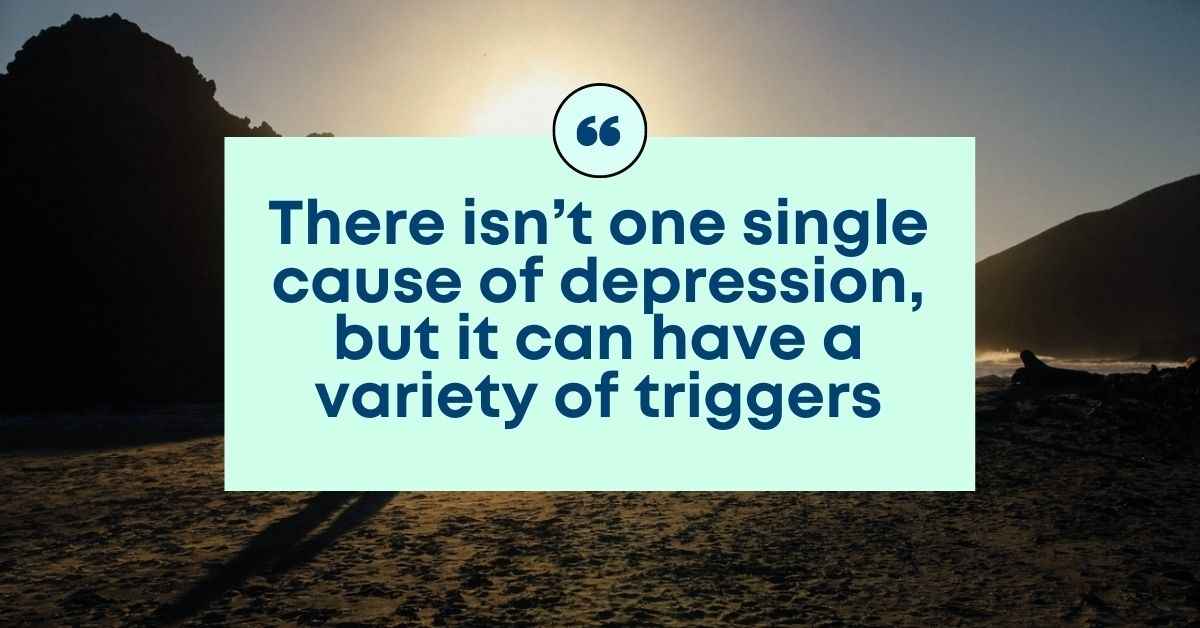Reviewed By Pamela Kirkpatrick - Senior Accredited NCS & Registered Member MBACP Adv. Dip.
Am I Depressed?
20 July 2021
Everyone has moments of feeling down, and for some of us, these feelings are fleeting come-and-go emotions. But for others, this feeling of sadness is more intense than short-lived mood fluctuations.
Everyone has moments of feeling down, and for some of us, these feelings are fleeting come-and-go emotions. But for others, this feeling of sadness is more intense than short-lived mood fluctuations. Depression can make you feel persistently low for weeks, months or even years at a time, and often with no explainable reason.
What is depression?
Depression is a common illness affecting people around the world – more than 264 million people to be exact, as cited in findings issued by the World Health Organisation in 2020. Depression is a serious health condition affecting around one in 10 people throughout their lifetime and studies show that around 4% of children in the UK between the ages of 5 and 16 are depressed or anxious, and more women than men are affected. When depression is at its worst, it can lead to suicide.

Am I depressed?
The symptoms of depression can be thoughts, feelings or behaviours which we all experience as a low mood. But if you’re depressed, this feeling might become more unbearable, longer-term or can be experienced alongside other symptoms. The more symptoms someone has, the more likely they are to be depressed.
Depression can change your behaviour and the things you were once able to do become more difficult. You might be less interested in socialising and withdraw from family or friends. You might feel less productive in your work or studies, and find it difficult to concentrate. You might take less enjoyment from activities you used to enjoy and your sleeping patterns may change, whether you’re sleeping more or less. You might rely on alcohol or substances to cope and your sex drive or appetite might be impacted.
People with depression tend to feel unhappiness, sadness, frustration, a lack of confidence, anxiety, indecision or irritability. Other symptoms include feeling tearful, hopeless or more overwhelmed than usual.
If you or someone you know may be experiencing depression, it’s important to reach out and get help. Read our guide me section to learn more about your support options.

What causes depression?
There isn’t one single cause of depression, but it can have a variety of triggers. Stressful life events, such as the death of a loved one, divorce, money worries, health issues, losing a job or having a baby can all cause symptoms of depression. It’s possible for symptoms to develop despite explainable triggers and people who have a family history of depression are genetically more at risk.
Lifestyle choices and circumstances can also increase the likelihood, including the impact of serious illness, drug or alcohol abuse or routine exposure to stressful environments.
It can often be a combination of factors that influences a person’s chances of experiencing depression and it’s important to know the symptoms so you can identify if this is happening to you or someone in your life. Recognising the symptoms means you can seek support sooner and lessen the risk of mild depression – which has some impacts on daily life – becoming moderate or severe depression, where symptoms have a significant impact or make it impossible to live life as you normally would.

How can I support depression?
Talking therapies, which involve speaking to a trained professional, can help you explore your feelings. Another treatment option is antidepressants, which can be prescribed by your GP and taken alongside talking therapy or on their own. For information about antidepressants, visit NHS CHOICES. The type of treatment which suits you will depend on the severity of your symptoms and it’s recommended you speak with your GP to assess this.
For mild cases of depression, treatment can often be through developing coping techniques, such as mindfulness, learning healthy thoughts patterns through CBT or making lifestyle changes, such as exercising, getting outdoors into nature, reducing alcohol intake and eating healthy.
Many people with depression seek support, whether it’s through a mental health support service, community support, speaking to someone through a helpline or getting one-to-one support, such as talking therapy, CBT, life coaching or creative therapies. Once you’ve decided on an option, it can help to prepare for getting the most out of your support.
Get Inspired Further
Anxiety Kill it with compassion
Dive into the importance of self-compassion and how it is the foundation of anxiety-busting superpowers.
understanding self harm
If you’re self-harming, you don’t have to go through this alone, you can get the right support to improve your wellbeing.
art therapy
Art therapy can help you in many ways. Art therapists, Nina & Erin, explain how.



